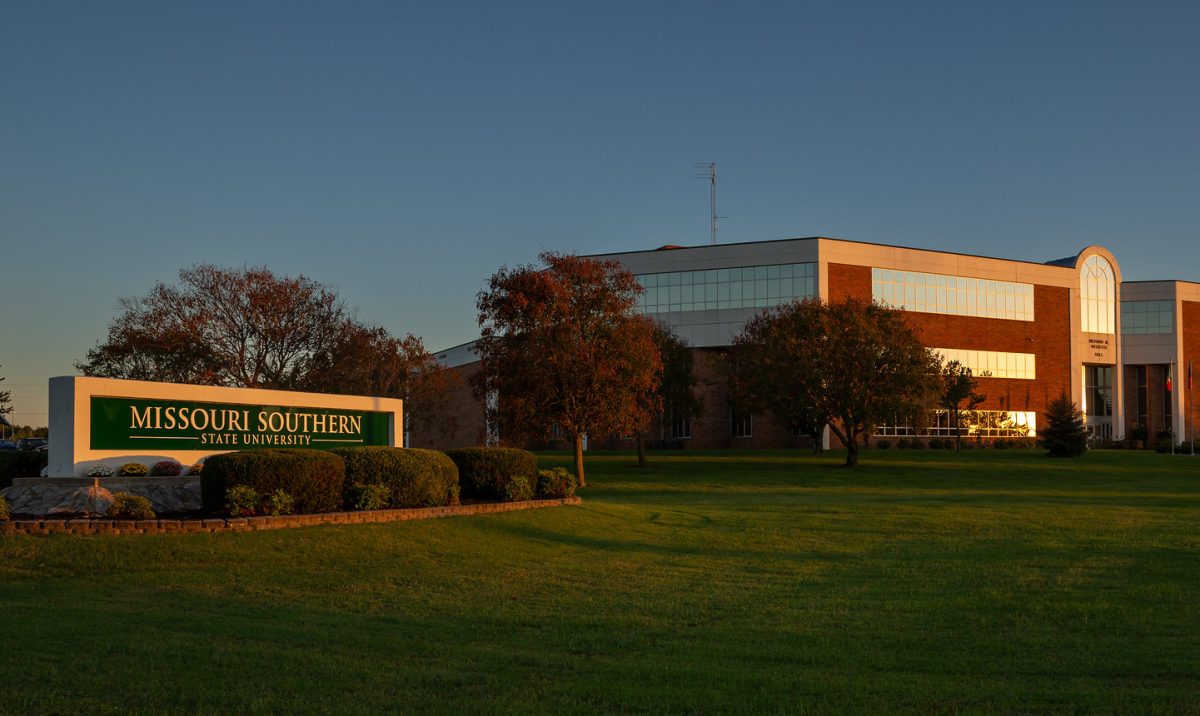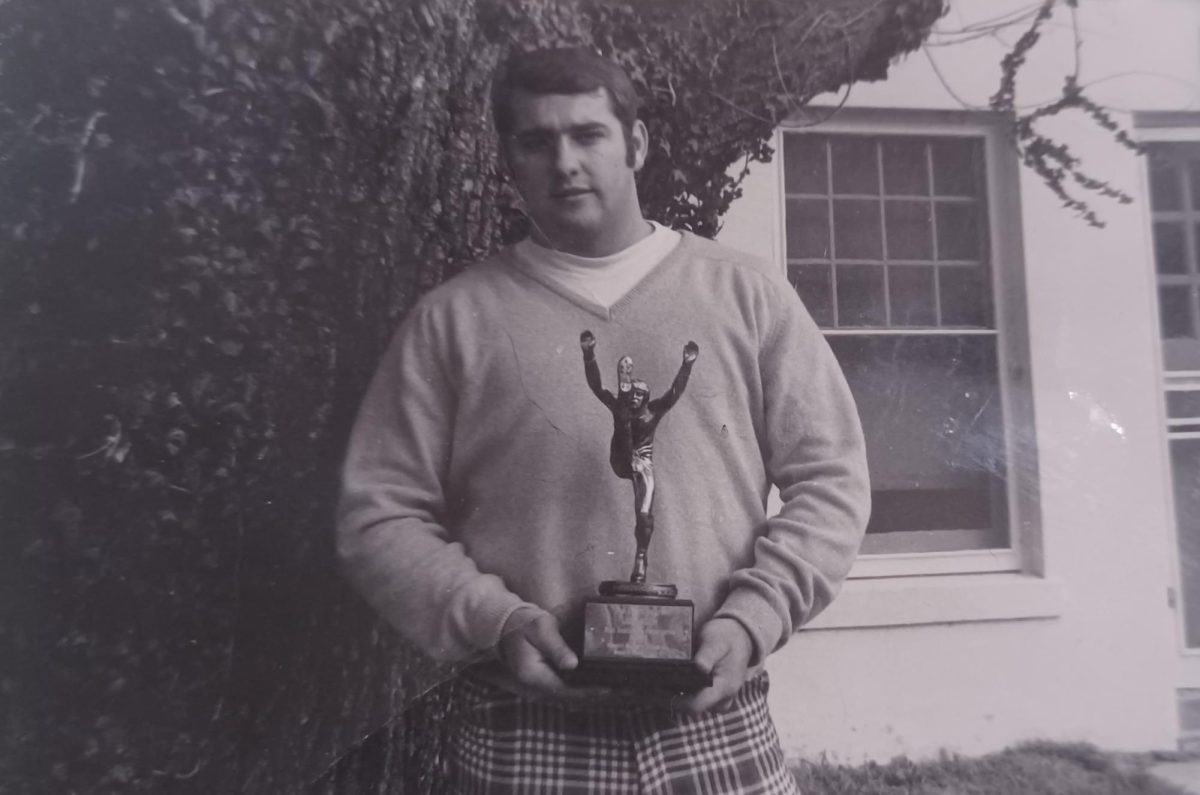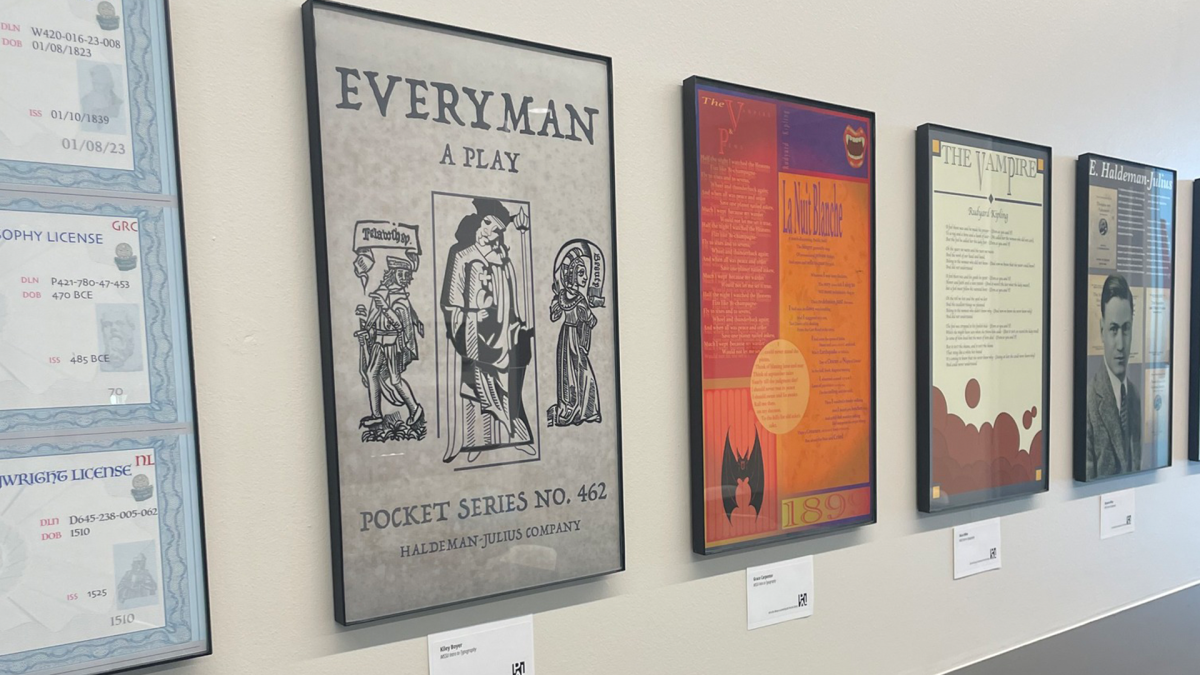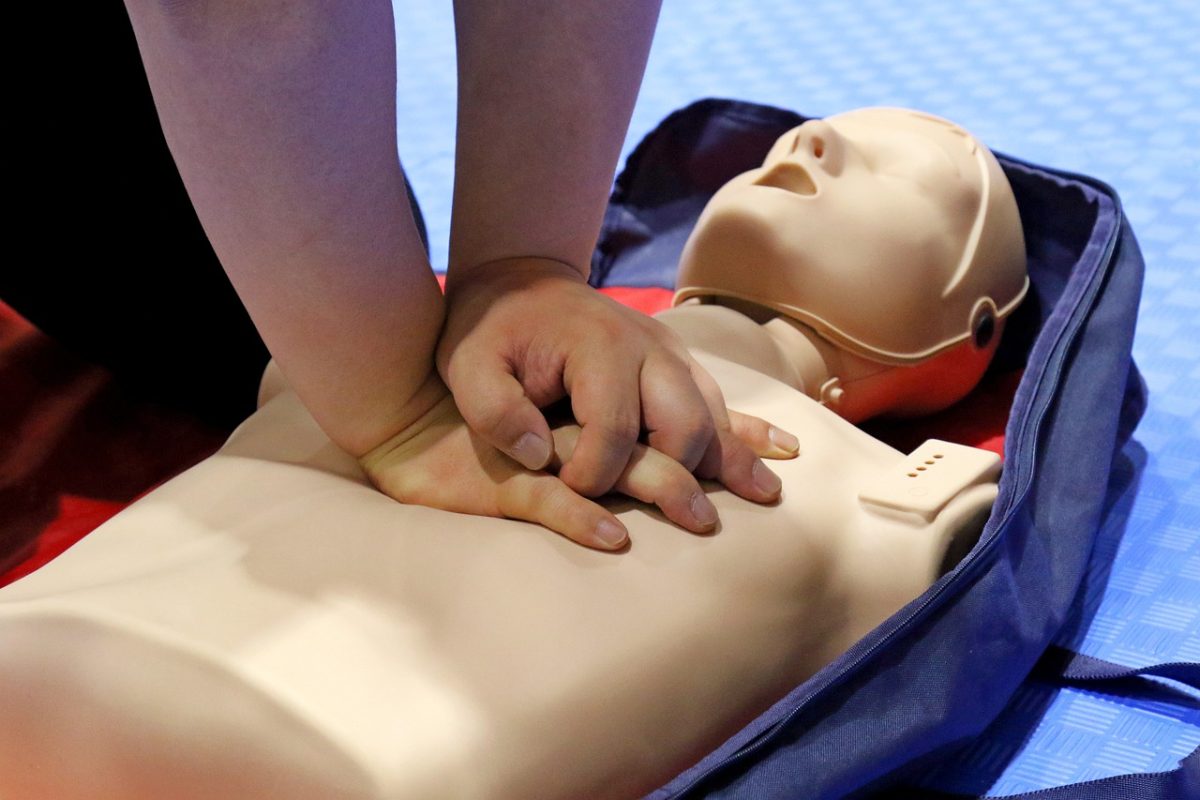Have you heard the rumors?
I heard it from someone who claimed to see a custodian emptying a blue bin in an ordinary dumpster behind Hearnes Hall. Others heard that both bins are collected at the same time and combined. Others still heard that no one puts anything in the blue bin, anyway.
On the issue of recycling, the campus community at Missouri Southern State University (MSSU) is disconcerted. As rumors circulate, students and faculty alike are discouraged from recycling. Why seek out a blue bin when the gray one is right there, if it all ends up in the same place anyway?
I set out on a fact-finding mission to determine once and for all: does MSSU recycle?
In short, yes. Jeff Boman, Director of Facility Services, confirmed that paper, cardboard, and aluminum is recycled on campus. But there are pitfalls in our operation. When Boman became Director in September, he found the campus recycling effort disjointed, at best. Recycling was reduced to departmental projects organized in certain buildings.
“Within Reynolds Hall, for instance, we have recycling containers in this building because the EHS program paid for them,” said Dr. Teresa Boman, Program Director of Environmental Health and Safety.
Through Facility Services, Boman has reinstituted recycling on campus. But bins are sporadic. Many students don’t know where to find them and resort to disposing of recyclable materials in the trash.
“There are a few [bins] for plastic in Taylor Hall, one for paper in Kuhn, and I think some in Billingsly,” said Laurel Wheeler, Secondary and Middle Level Education major. “I don’t see them often at all.”
This is the crux of the recycling problem on campus: simplicity. Students and faculty alike are far more likely to recycle when it’s convenient. Few are willing to carry their trash from building to building, waiting to spot the correct bin.
“Most people are going to do what’s easy, even if you get the good feels of recycling,” Dr. Boman said. “If I have to walk this or drive it somewhere else, is it easier just to throw it in the trash? Yeah. It’s easier.”
Even when recycling bins are accessible, like in Reynolds Hall, they’re often skipped over. Dr. Jill Greer, Professor of Anthropology, is frustrated by the state of recycling on campus, and especially by failures in Webster Hall.
“I put up signs next to the trash saying, ‘Please trash only. Recycling down the hall,’” she said. “We can walk and carry our trash another 20 feet. How goddamn lazy are we? I’ve observed [people] throwing something in their own trash which was recyclable. I pick up after everybody when there’s a bin in this building… I will see paper thrown in the trash next to the recycling bin. Are we just ignorant or do we not even notice?”
The issue is also financial. Recycling bins, program training, staffing, and work hours incur costs rendered superfluous among the university’s more urgent priorities.
“We used to have bins outside on the oval from a previous Earth Day grant to put more recycling accessibility on campus,” Dr. Boman said, “and they took those away because they just didn’t have the manpower to check them. Physical plant is already so busy. And there’s not a ton of staff working in that department anyway, on a big campus. And unfortunately I don’t think [recycling] is always the number one priority when, like, Hearnes Hall is flooded. Other things take priority over ‘Is there a recycling bin?’”
Furthermore, even when recycling makes ecological sense, it doesn’t always appeal to institutions financially.
“The price of recycling is only beneficial if someone wants to pay for that commodity,” Dr. Boman said. “So, if someone doesn’t want to pay for that commodity, there are times when companies who collect recycling dump it in a landfill because it’s not worth their time and energy.”
On the institutional level, recycling is simply not MSSU’s top priority. Where budgets are concerned, even valuable efforts like sustainability fall victim to brass tax.
Everyone I spoke to agreed: we can’t wait for the university to act. Lax recycling on campus is not any one entity’s fault, nor is it any one entity’s responsibility. We – students, staff, faculty, alumni – must reinvigorate the recycling initiative ourselves. We are all responsible for making our campus greener. A grass-roots movement can accomplish what the institution cannot: accessibility, sustainability, and productivity.
“We go through movements where there are recycling bins in lots of different locations to not having the manpower to sort those,” Dr. Bowman said. “If it was more of a volunteer student [movement] with faculty and staff who were interested, we could avoid that wax and wane. If one or two percent gets recycled, if we’re eliminating any from the landfill or from the environment, then it’s worth it. Some is better than none.”
Some is better than none. Dr. Boman’s words echoed in my conversation with Dr. Greer. It’s better to try minimally than not at all. To Dr. Greer, solutions are practical and therefore feasible with collective effort. We can challenge our instinct to immediately dispose of our trash, for instance. If there were less trash cans on campus, she suggested, people would hold onto their trash for just a few moments longer, increasing the likelihood that they stop at a recycling bin. We can bring reusable water containers to campus so we don’t purchase bottled water, eliminating the need to recycle the plastic. We can move recycling bins closer to trash cans. We can petition Fresh Ideas to switch to a sustainable model with reusable trays, dishes, and flatware. We can create a Sustainability Committee in the student and faculty senates. We can simply be more aware of what we chuck in trash cans and where it will end up. We can try.
“Every American citizen should [recycle] as a civic duty,” Dr. Greer said. “That is just as much as civic responsibility as paying your taxes.”
Anyone who wants to learn more can attend the Earth Day Sustainability Conference on April 18, from 8:00 AM to 12:00 PM. See https://www.mssu.edu/academics/education/environmental-health/events.php for more details.

























